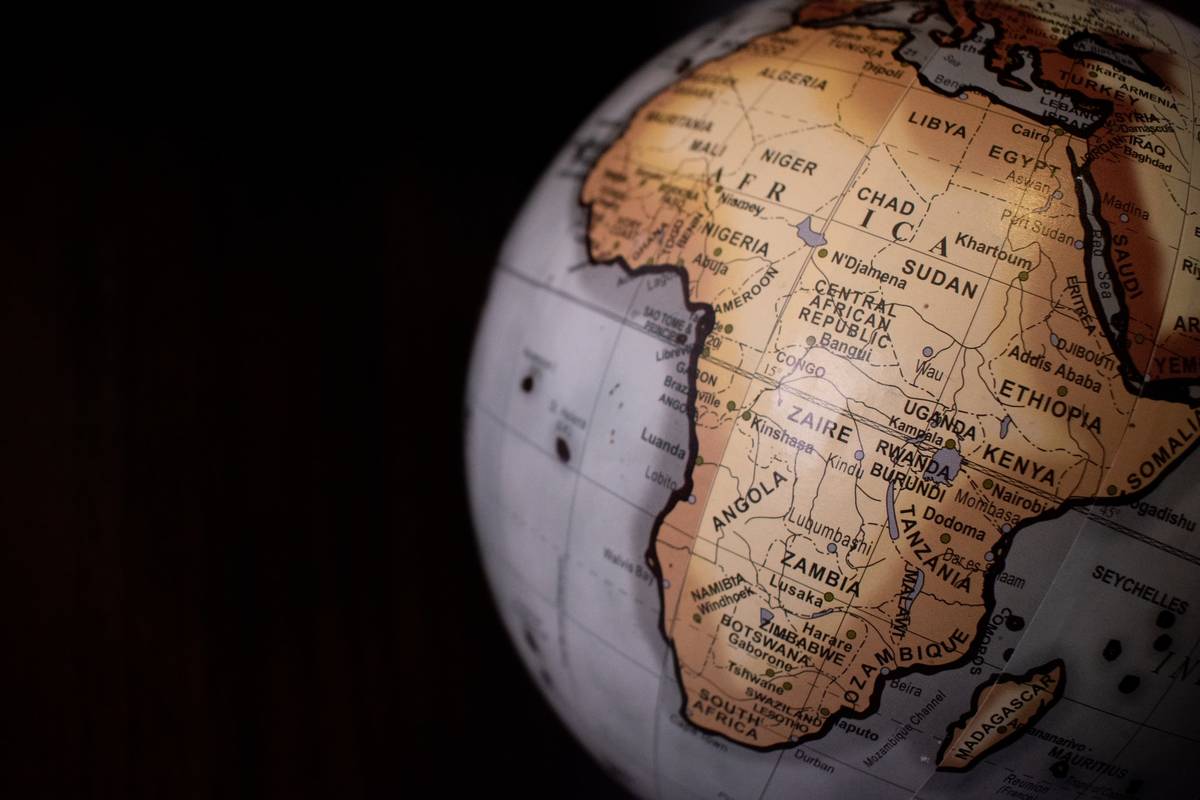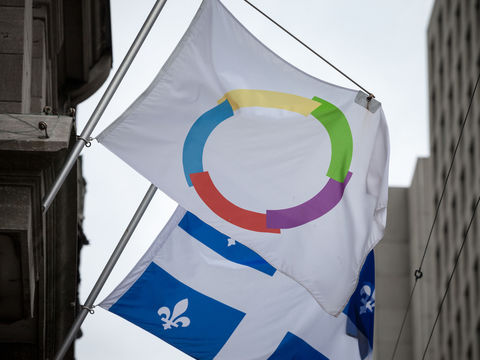Depending on how we define a language versus a dialect, there could be around 1,250 or over 3,000 languages natively spoken in Africa.
The needs of government and trade, and more recently the proliferation of the internet throughout the continent, have driven a consolidation. Many of the least-spoken languages are gradually shrinking, while the most-spoken languages become more popular.
This presents an interesting dilemma for foreigners who want to immerse themselves in an African culture or live in an African country. In most cases, the language you decide to learn will probably not be the primary language of everyone you speak to. This phenomenon can become even more pronounced if you travel significant distances, even without crossing any national borders.
But it’s also true that many Africans are accustomed to speaking multiple languages, perhaps three or more throughout the course of a day, especially in large urban centers.
If you visit any African country, there’s a practical way to deepen your connection and improve your ability to communicate: learn one of the lingua francas commonly spoken in the region you want to visit.
Amharic

Language is a sensitive political issue in Ethiopia.
Oromo is the first language of more than a third of Ethiopians, making it the most widely spoken native language in the country. It’s also the first language of a significant number of people in northeastern Kenya and some in Somalia.
But Amharic has had a special legal status in Ethiopia for many years, used by the courts and in business. As a result, apart from being the native language of about 29% of the population, it is also spoken as a second language by a further 23%, making it the only language understood by a majority of Ethiopians.
Although it’s not a deeply international language, learning it would certainly have a big impact on your experience visiting or living in Ethiopia as a foreigner. This is partly because successive governments have intentionally limited the use of European languages in order to preserve local cultures.
Ethiopia is an extremely attractive destination for travelers, due to its ancient history, unique and popular cuisine, and breathtaking natural landscapes.
Amharic has a fascinating alphabet that will seem totally new and unfamiliar to most learners, even those who natively speak another Semitic language like Arabic or Hebrew.
Hausa
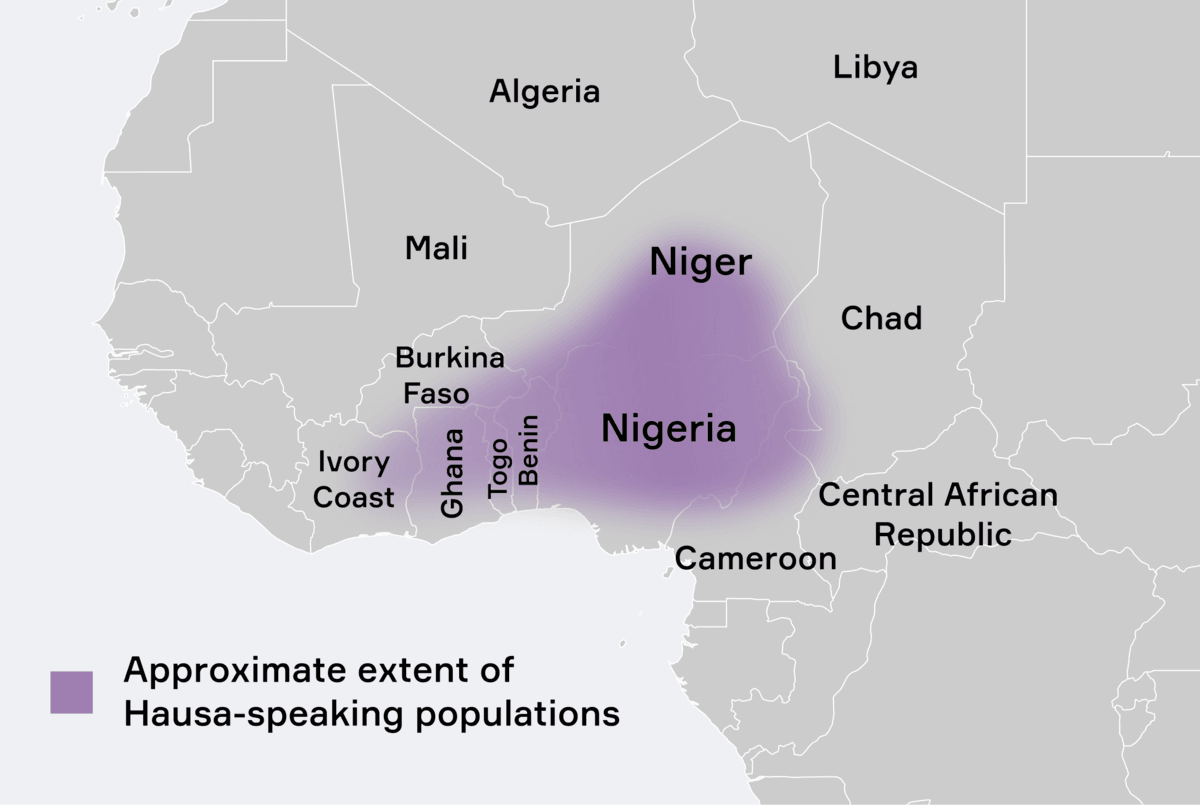
Estimates of the number of Hausa speakers vary widely. At least 35 million West Africans speak it as a first language, although the true figure could be 70 million or more. A further 15 million speak it fluently as a second language, and up to another 65 million speak it conversationally.
If these figures are accurate, that adds up to an astronomical 150,000,000 Hausa speakers.
Hausa is a tonal language (like Mandarin) with a subject-verb-object grammatical structure. It’s written using the Ajami script, a version of the Arabic alphabet used by many other African languages, including Swahili.
Learning Hausa would unlock the door to speak to millions more people. Inland West Africa is not a popular destination for foreigners, but for serious polyglots, people who work in international development, or anyone fascinated by the region it could present a rewarding challenge.
Swahili
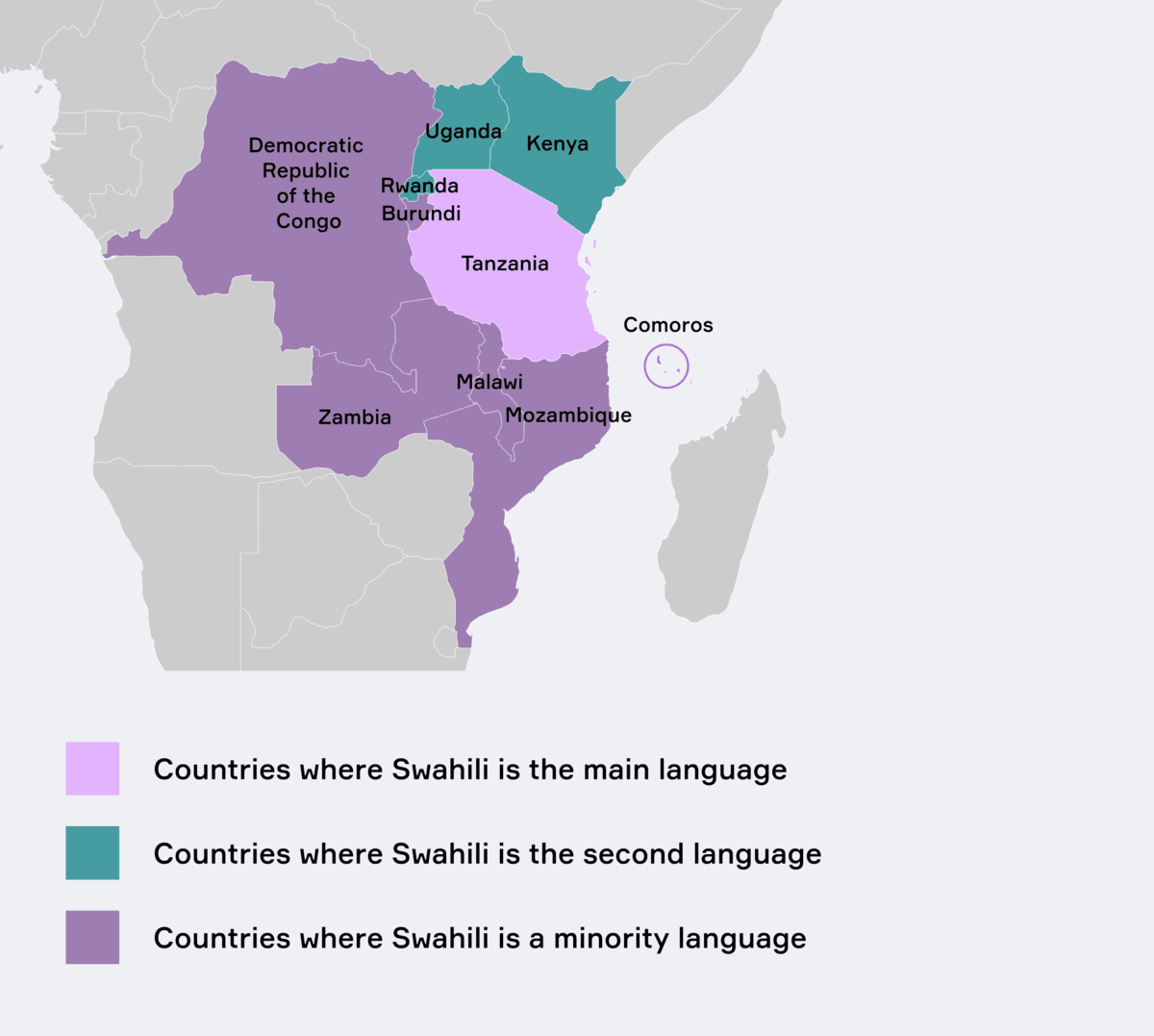
Swahili is the language most linguists will think of when talking about lingua francas in Africa.
It’s co-official with English in Kenya, Rwanda, Tanzania, and Uganda, and spoken by anywhere from 50 to 150 million people – the overwhelming majority as a second language.
It was traditionally written in an Arabic script but today almost always uses the Latin alphabet.
Linguists classify Swahili as a member of the Bantu family – the languages spoken by almost a third of all Africans, concentrated in the southern half of the continent. But up to 20% of its vocabulary is borrowed from Arabic, and there are even many loanwords from English, German, Persian, Hindustani, and Portuguese.
The very history of the language and the way it developed is international in nature. Commerce is one of the major themes of that story.
For that reason, Swahili remains the most popular language of African origin that foreigners want to learn. East Africa is an extremely popular destination for both tourism and business. It’s home to the Serengeti and some of the most sought-after flora and fauna in the world, but also some of Africa’s busiest ports.
Portuguese
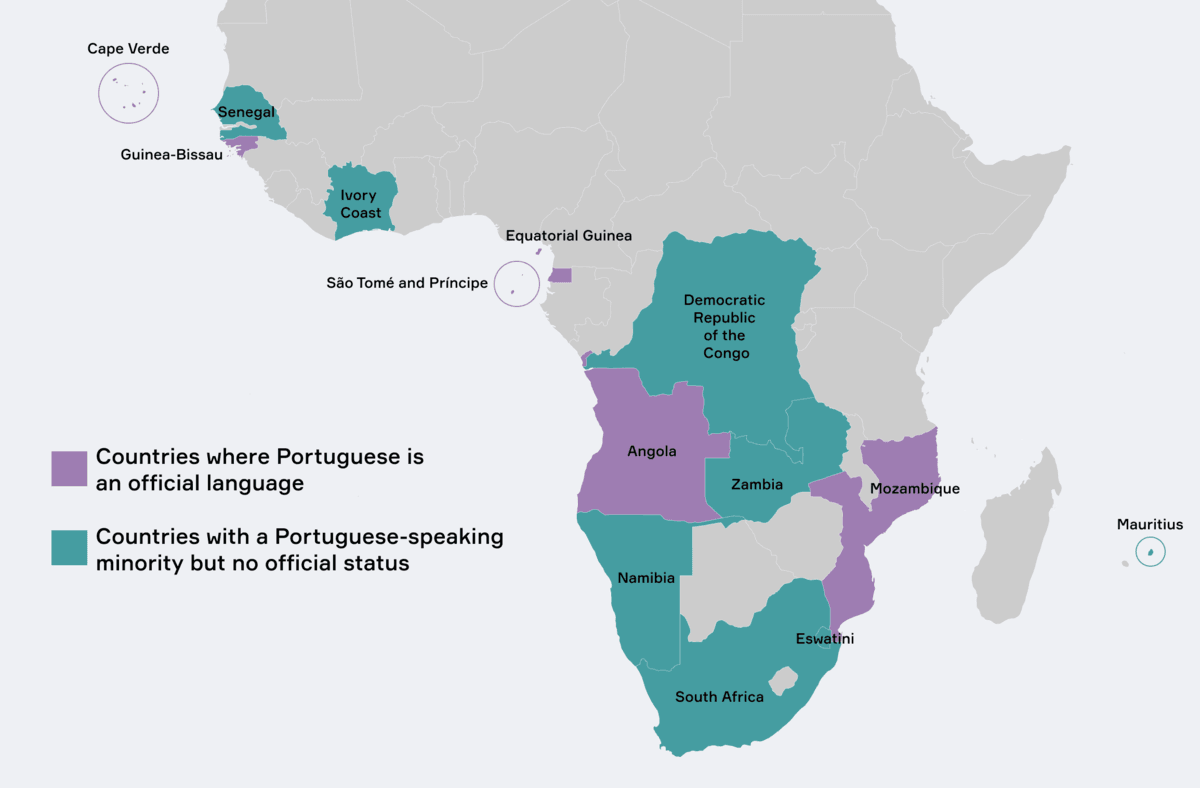
Portuguese is the official language of Angola, Mozambique, Guinea-Bissau, Cape Verde, and São Tomé and Príncipe, and co-official in Equatorial Guinea.
In Angola, Portuguese is not merely the language of urban elites, but is spoken throughout the countryside as well – 47% of the population speak it as their first language. It’s also spoken as either a first or second language by a majority in the Atlantic islands close to Africa, with the exception of the Canaries, which are part of Spain.
The continent is home to somewhere between 35 and 42 million Portuguese speakers, and possibly 3 million or more speakers of Portuguese-based Creole languages.
Learning Portuguese is a smart idea for anyone interested in visiting southern Europe, Latin America, and Africa, whether for business or leisure. Plus, if you already speak a Romance language, then it’s one of the easiest options on this list.
Arabic
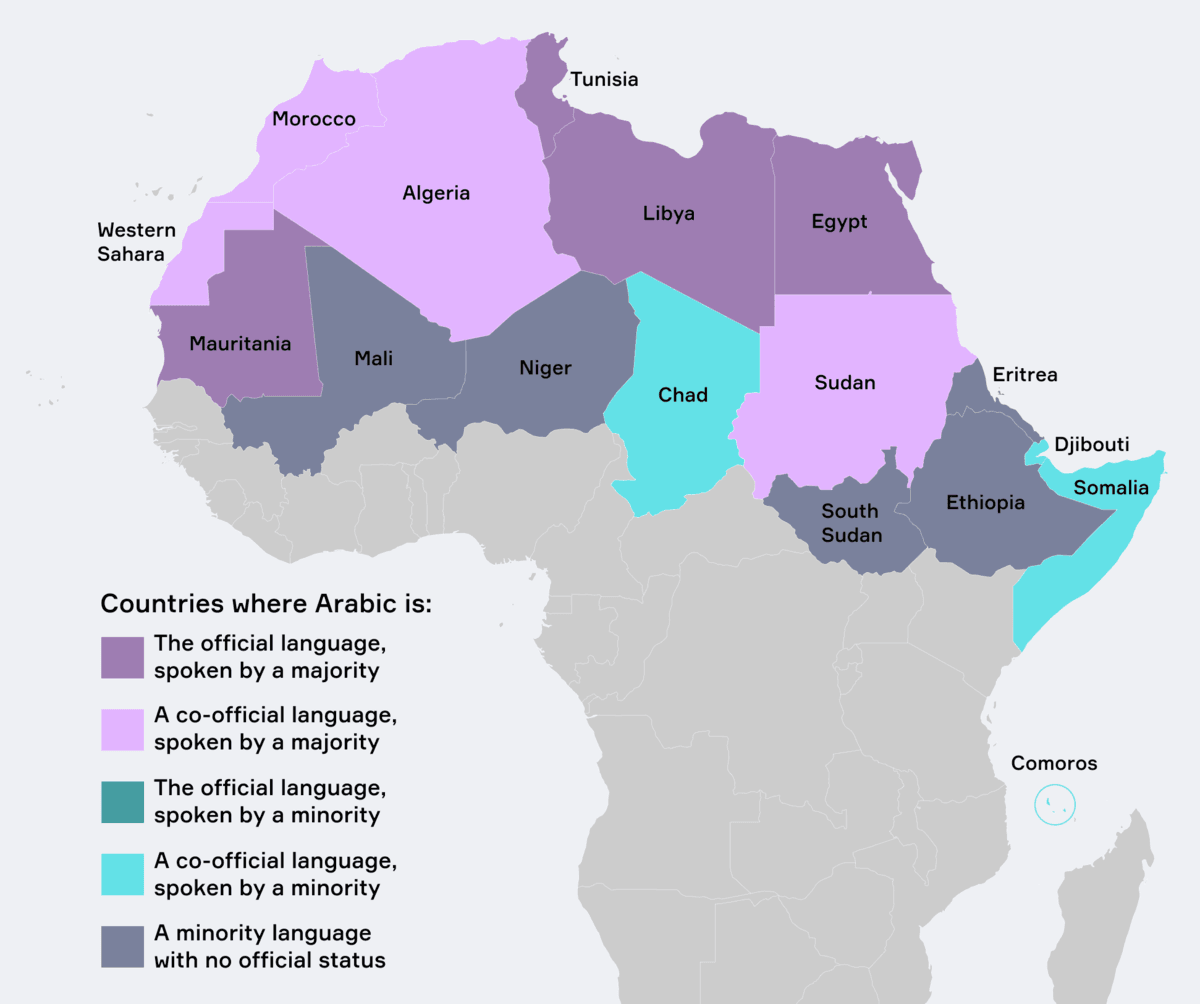
It’s important to note that many linguists feel that Arabic cannot be considered a single language, but rather a family of closely related languages.
It’s certainly true that learning the Egyptian variety does not necessarily prepare you to speak with Moroccans, for example. However, learning Modern Standard Arabic does allow you to be understood by the majority of Arabic speakers around the world.
About 42% of Arabic speakers live on the continent of Africa. It has official or co-official status in 11 African states, and about 150 million Africans speak some form of Arabic as a first language. A further 50 to 110 million are estimated to speak it as a second language.
For people whose first language is from the Romance or Germanic families, learning Arabic can be very challenging. The phonology, morphology, and grammar all differ significantly from modern European languages and demand a significant investment of time and energy.
English
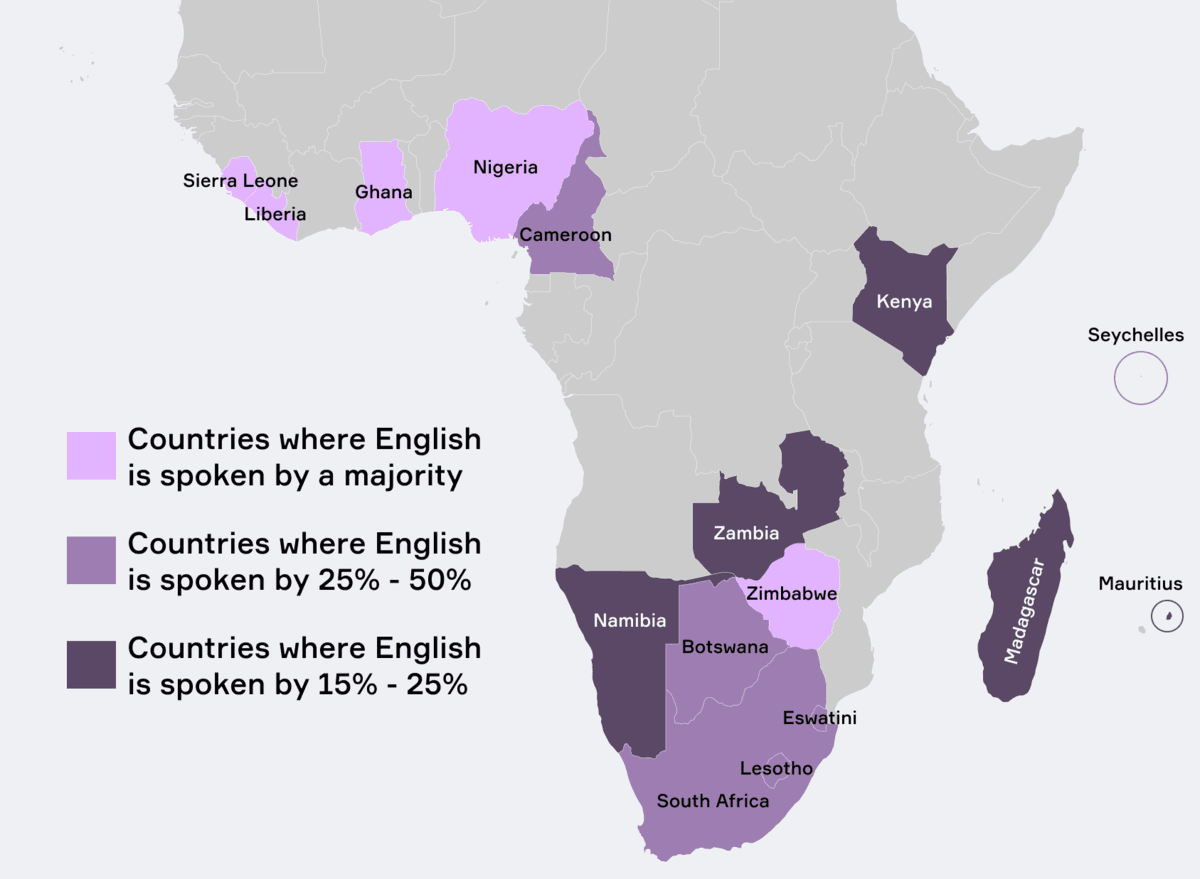
It’s difficult to estimate how many English speakers live in Africa. Only around 130 million are fluent, according to the editor-in-chief of Business Insider Africa. World Atlas, on the other hand, claims that about 700 million Africans speak at least some English.
What’s certain is that English is the main lingua franca for several African countries, especially Nigeria, Sierra Leone, Liberia, Zimbabwe, and Ghana. It’s a major second language throughout the continent.
In addition to that, it’s the first language of at least 9% of South Africans – about 5 million people.
French
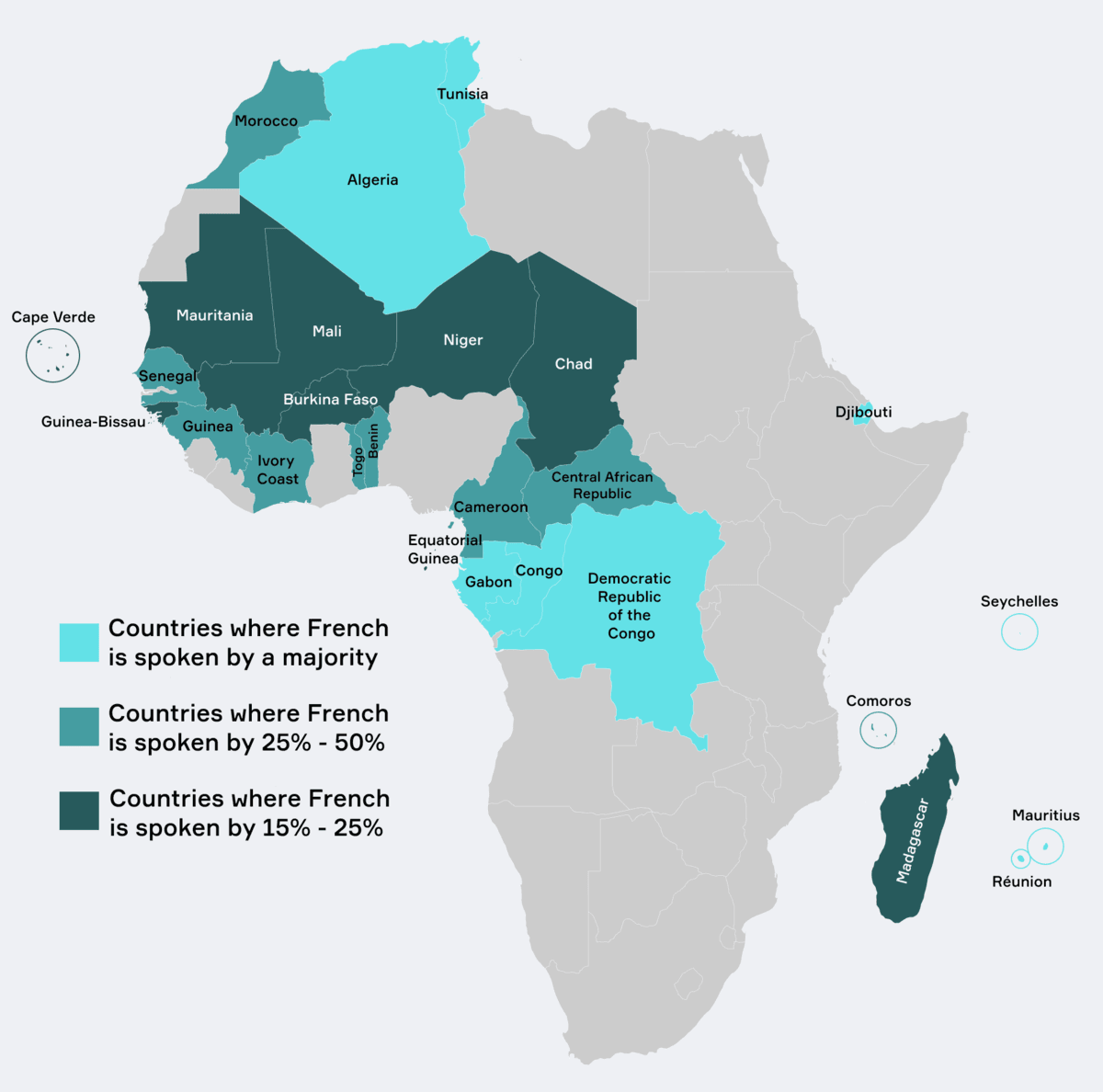
About 189 million Africans speak conversational or fluent French. In the countries where it’s spoken, it’s usually considered to be the language of business, often of science, and sometimes of government.
For those already fluent in English who simply wish to increase the number of people they are able to speak to throughout the continent of Africa, French represents the obvious choice. The overlap between speakers of the two languages is relatively small, but so is the linguistic distance to cover and therefore the difficulty of learning it.
Apart from being one of the most prominent African languages, French is also a truly global language. The Organisation internationale de la Francophonie represents 54 full member countries, spread throughout the globe. It is also often called a language of the future, as the number of speakers continues to grow, particularly in countries whose economies are also growing fast.
